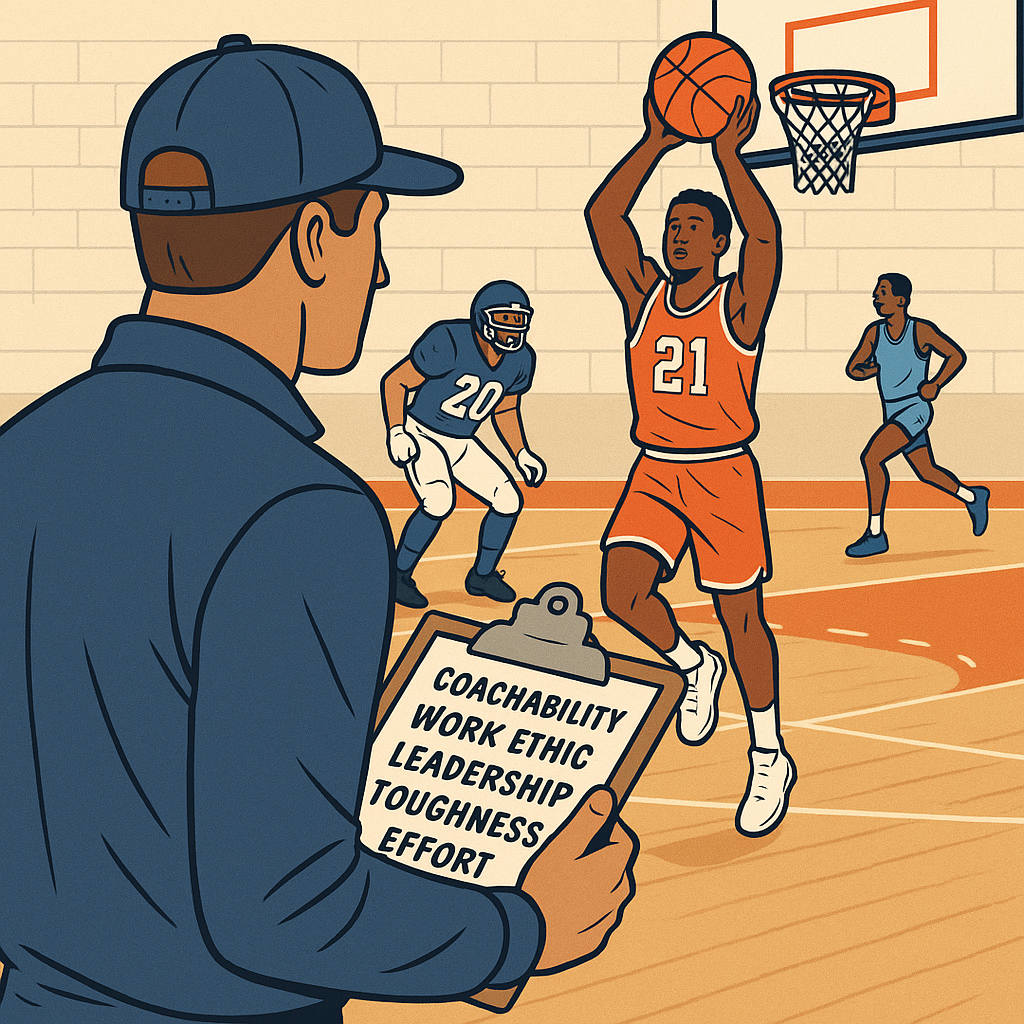Latest News
Beyond the Highlight Reel: Why Coaches Recruit Character — Not Just Skill

In today’s hyper-competitive recruiting arena, standout stats and athletic gifts alone don’t guarantee a roster spot. Increasingly, college coaches are looking past the highlight tape—and for good reason. It’s the athletes’ intangibles—the unmeasurable traits like maturity, work ethic, and mental toughness—that often make the difference between a good recruit and one who thrives at the collegiate level.
Revealing the Hidden Qualities
A study of university coaches revealed the high value placed on traits such as social character, trustworthiness, maturity, resilience, motivation, and work ethic—all part of the psychosocial foundation coaches seek in recruits. Coaches actively develop strategies to assess these attributes and avoid recruiting players who severely lack them.
Meanwhile, surveys of NCAA coaches in other sports underscore similar findings: beyond power and speed, the most prized traits in recruits are team-oriented behaviors, strong work ethic, hustle, mental toughness, drive, leadership, and coachability.
What Makes a Recruit Irresistible?
It isn’t just the halftime highlight—it’s how a player behaves at every rep, on every practice field, and in every huddle. Coaches observe:
-
Coachability: Does the athlete absorb feedback and adapt quickly?
-
Work Ethic: Do they outwork their peers consistently?
-
Team First Mentality: Are they ready to take on any role for team success?
-
Hustle & Effort: Do they pursue the ball with relentlessness?
-
Attitude & Accountability: How do they interact with teammates, coaches, and opponents?
A Coach’s Perspective: The “Butler Way”
Butler University’s former coach, Brad Stevens, is a prime example of this philosophy in action. He famously built championship-level teams not by recruiting five-star stars but by prioritizing intangibles—humility, curiosity, and a willingness to grind over pure talent.
What This Means for Parents and Athletes
-
Athletes: Beyond improving athletic skills, focus on building maturity, leadership, and responsiveness to coaching. These qualities are recognized, remembered, and rewarded.
-
Parents & Guardians: Emphasize behaviors like accountability, coachability, and team attitude as early as middle school. Make character development part of the recruiting conversation.
-
Recruiting Mindset: Remember, coaches are investing in individuals—with classroom habits, emotional maturity, and consistency that bode well for long-term team synergy.